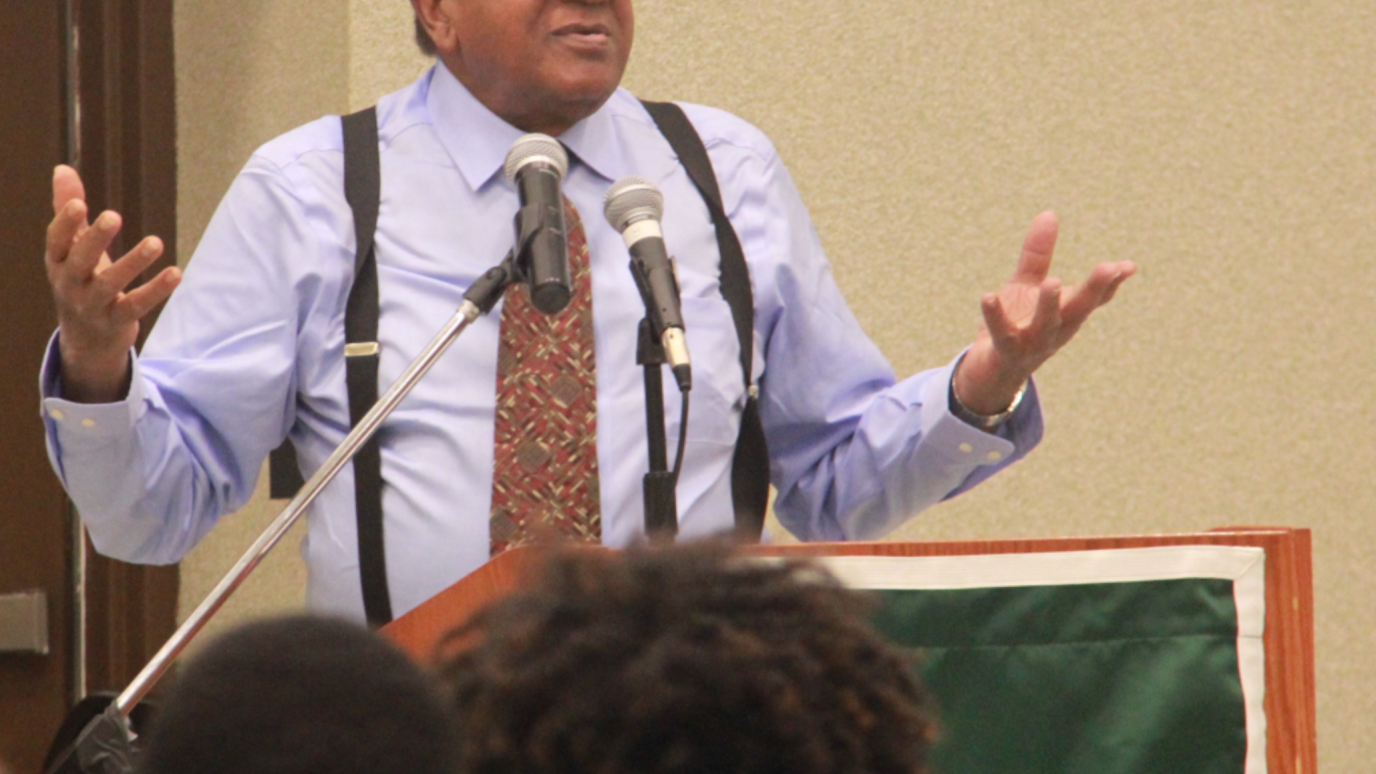
The power of organized activism and need for young people to build on the efforts of their predecessors were the central themes on Thursday, February 16, 2017 when Bobby Seale, famous as the co-founder of the historic Black Panther Party, addressed an audience of nearly 400 students, faculty and staff at SUNY Old Westbury.
For nearly 90 minutes, Seale recounted his life from his upbringing in Northern California, to his professional career in community development, and his work as a leader in the creation of the Black Panther Party, the revolutionary activist organization seeking equal rights, support and opportunities for African-Americans from its founding in 1966 until 1982.
In recounting his work to create the party with fellow co-founder Huey Newton, Seale focused emphatically on their intent to raise interest and understanding of the rights, needs, and contributions of African-Americans both across the nation’s history and in contemporary society. Further, he said, the goal was to activate African-Americans to realize the need for more members of their community to run for political office and support those who did.
He discussed the earliest public tactics the party used to raise its profile, most notably their monitoring of police officer activity in and around Oakland, California. “The goal was to capture the imagination of the people,” Seale told the audience. “If you can capture the imagination of the people, then you can organize them.”
Seale noted that detractors of the Black Panther Party at the time and throughout history have decried the arming of some party members with rifles and handguns and wrongfully portrayed the party as a violent organization. He noted that he and his colleagues were always well-versed in their rights and the law, including those related to firearm possession and use. “We didn’t want to be violent, but we wanted people to know that, if you attack me, I’m going to hit back.”
The lecture also included discussion of other activities of what he described as the Black Panther Party’s “human liberation movement,” including the development of free breakfast programs for underprivileged children, free health clinics, and among the earliest sickle cell anemia testing programs for African-Americans in the United States. “We realized we needed other programs along with our voter registration drives,” Seale said.
Along with discussing his history of activism across the past 50 years, Seale looked to the future, noting his intent to create a not-for-profit organization focused on what he described as an “environmental renovation and youth jobs program.”
In closing, Seale referenced the famous call of the Black Panther Party while imploring the students in attendance to be organized and active. “You must get your education, and make sure your ideas, beliefs, and actions always correspond to reality,” he said. “Power to the people is still what it’s all about.”
This event was presented by the College's Politics Economics and Law Club and co-sponsored by the PRIDE Club, Mu Sigma Upsilon Sorority, Inc., and MALIK Fraternity, Inc.
